Watching the Top 100 Highest-Rated Movies: #6-10
In this installment of our challenge to watch the top 100 highest-rated movies of all time, we watch and rate movies ranked #6 through #10.
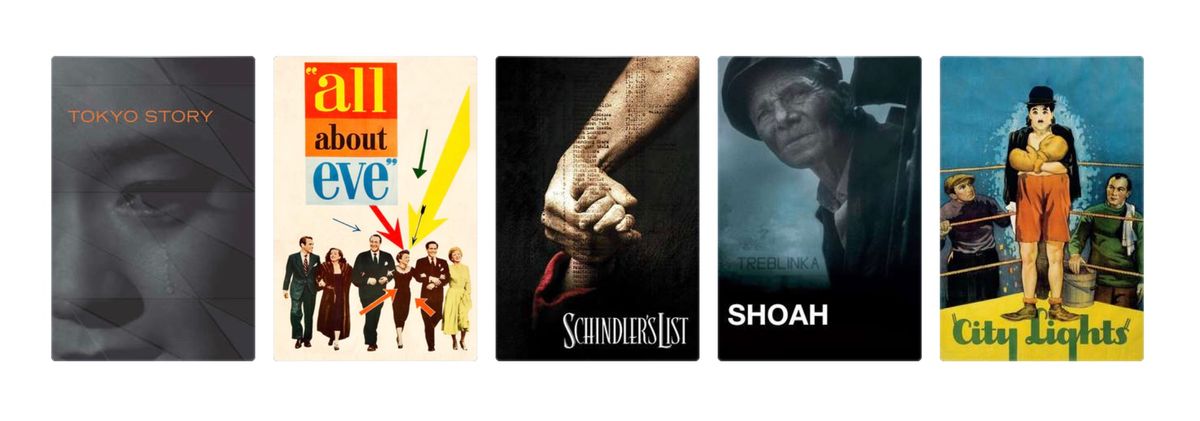
Here we are: the bottom five of the top ten highest-rated movies of all time. Our progress through The List really slowed down over the past year (with my last entry in this series being from over ten months ago!), but hey, we moved to a new state, have a rambunctious toddler, and it's been really darn nice outside, ok?
We also briefly diverted from movies 6-10 to go back and watch #70: Notorious (1946) for the first time, since it was now available on streaming 2.5 years after we originally got to its position on The List.
Oh and one of the movies in this installment was 9.5 hours long, so I think we get some bonus time for that one.
#10. Tokyo Story (Japanese: 東京物語, Tōkyō Monogatari) (1953)
Directed by Yasujirō Ozu
Screenplay by Kōgo Noda, Yasujirō Ozu
Starring Setsuko Hara, Chishū Ryū, Chieko Higashiyama, Kyōko Kagawa, Haruko Sugimura, So Yamamura, Kuniko Miyake, Shirō Ōsaka, Eijirō Tōno, Nobuo Nakamura, Hisao Toake, Mutsuko Sakura, Toyo Takahashi, Sachiko Mitani
Did we like it? 🤷♂️👎
Would we watch it again? 👎
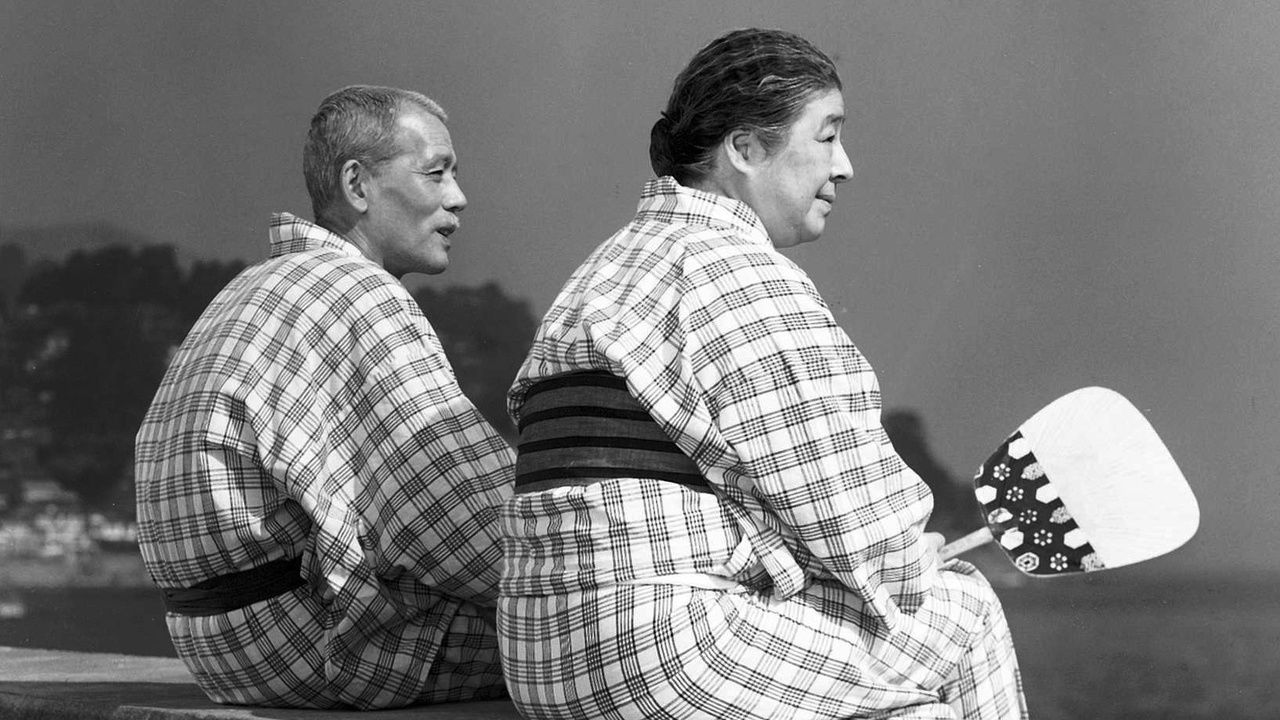
Tokyo Story is considered to be Yasujirō Ozu's master work, but before this I had ignorantly never even heard of Ozu or seen any of his many films. It was very slow, which gave gravity to its poignant, solemn story, but like many acclaimed older films on The List, it also felt quite plodding. It was interesting reading some of the many adoring reviews of this film - clearly, this movie is incredibly affecting for many modern viewers - but I just didn't get it.
The one thing I thought was a bit odd about this film (and not necessarily a bad thing) is that it completely skipped transition scenes you see in most movies. Like when the characters traveled to a new major location or circumstance, those transitions were immediate and usually with zero acknowledgement of the change, and the only context you gained about how they got there was given later through a passing reference. It was unique, but I think there's also a reason why most movies include those devices.
Overall, this movie was quite sad and bleak, but it was an interesting glimpse into Japanese culture that I've otherwise rarely been exposed to. And there's definitely a timeless tale of children under-appreciating their parents in here, which I feel is a good reminder to self-correct. I also appreciated that, despite a few odd character moments, the father Shūkichi was the gold standard for stoically accepting your unchangeable circumstances.
And one lasting thing that stuck with me: whenever I hear someone non-verbally grunt in acknowledgment, I'll forever now think of Shūkichi saying "Ahhh...".
#9. All About Eve (1950)
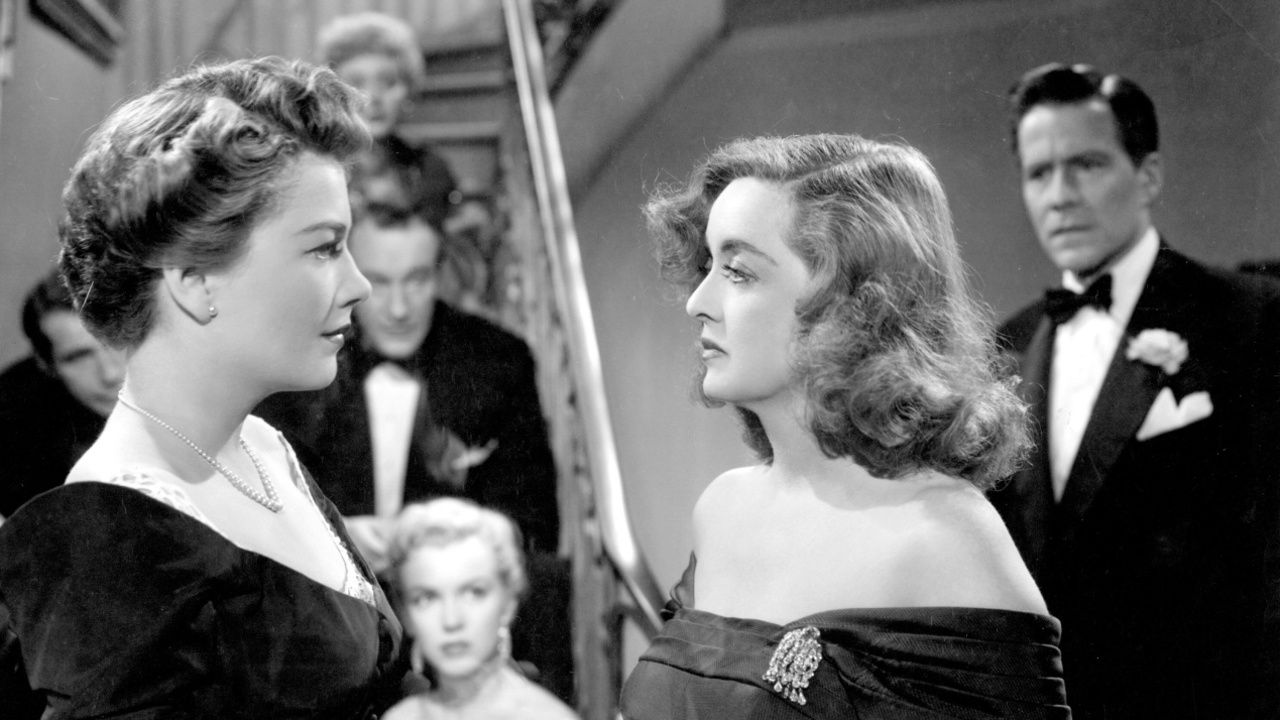
Directed by Joseph L. Mankiewicz
Screenplay by Joseph L. Mankiewicz
Based on The Wisdom of Eve by Mary Orr
Starring Bette Davis, Anne Baxter, George Sanders, Celeste Holm
Did we like it? 👍
Would we watch it again? 👍
All About Eve won six of its 14 Academy Award nominations in 1951, including Best Picture, and is the only film in Academy Awards history to receive four female acting nominations. It was a huge hit and box office success, and in 1990 it was the 26th movie to be included in the US Library of Congress's National Film Registry.
And, in classic form, we had never heard of it until now.
Overall, we thought it was great. The story was engaging and full of conniving shenanigans, and the writing and acting were top notch. And of course, writer and director Joseph L. Mankiewicz (who is famous in his own right) was first introduced to Hollywood by his brother, Herman J. Mankiewicz, who we last saw as the co-writer of a little movie called #41: Citizen Kane (1941). These Mankiewicz boys, they're going places, I tell ya!
#8. Schindler’s List (1993)
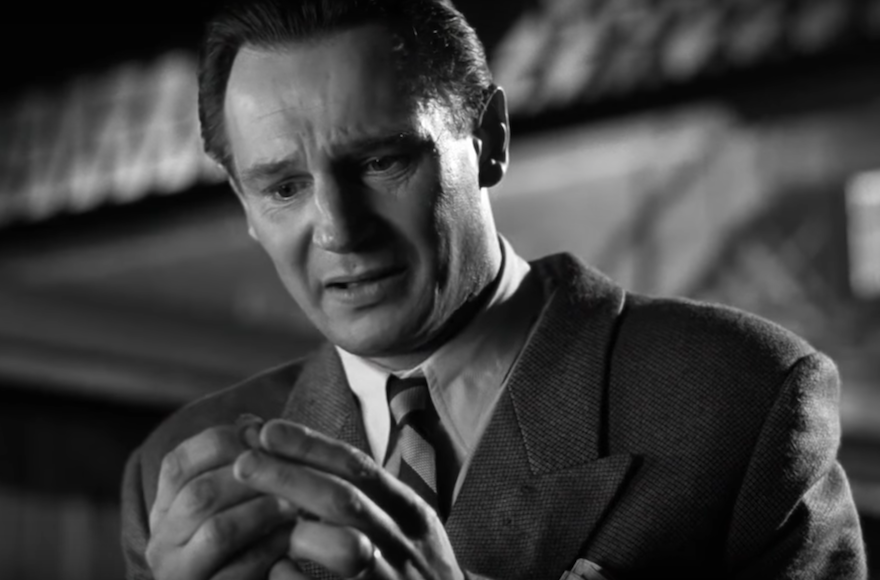
Directed by Steven Spielberg
Screenplay by Steven Zaillian
Based on Schindler's Ark by Thomas Keneally
Starring Liam Neeson, Ben Kingsley, Ralph Fiennes, Caroline Goodall, Jonathan Sagall, Embeth Davidtz
Did we like it? 👍
Would we watch it again? 👍
This is a difficult, heartbreaking movie, but it's incredibly moving and well-made. I hadn't seen this since high school - I believe we watched it as part of our World History class, and in hindsight, I really appreciate that my teachers had the boldness to show a film like this to us. While I remembered the broad strokes, I was largely able to experience this movie as if it were the first time.
For better or for worse, just like Spielberg's #53: Saving Private Ryan (1998), Schindler's List perfectly captures the absolute brutality and horror of its subject matter.
I'm glad I watched The Fabelmans (2022) last year, which is Spielberg's semi-autobiographical telling of his youth leading up to his start as a professional filmmaker. Seeing some of the (I presume mostly accurate) background about his Jewish heritage made me appreciate how important making this movie must have been to him.
The origin of this movie is also fascinating: A man named Poldek Pfefferberg was a Polish Holocaust survivor who was among the 1,200 individuals who were saved by the real Oskar Schindler (these survivors are commonly referred to as the Schindlerjuden). After the war, he made it his life's work to spread the story of Oskar Schindler, and he tried unsuccessfully for decades to get a movie made about him. He eventually moved to Los Angeles where he owned a leather goods store, and one day he met an author named Thomas Keneally and convinced him to write Schindler's story as the novel which became Schindler's Ark (1982) (which I still have sitting on my bookshelf, unread...). Pfefferberg then allegedly called Steven Spielberg's office every week for 11 years until Spielberg agreed to make the movie.
Spielberg initially didn't feel that he was mature enough as a director to make a movie like this, offering it instead to individuals like Roman Polanski, Martin Scorsese, and Sydney Pollack who all declined. But Spielberg eventually agreed to do it because he was concerned about the rise in Holocaust deniers and Neo-Nazism, and that people were becoming too accepting of intolerance. Cough.
Pfefferberg was ultimately written as character in the movie, and the real Pfefferberg was featured in the film's epilogue where many surviving Schindlerjuden visited the real grave of Oskar Schindler to pay their respects. Schindler's List was nominated for 12 awards at the 66th Academy Awards - winning seven - and Pfefferberg and his wife joined Spielberg as his guests at the ceremony, and was personally thanked by Spielberg during his acceptance of the award for Best Director. That's pretty cool.
#7. Shoah (1985)
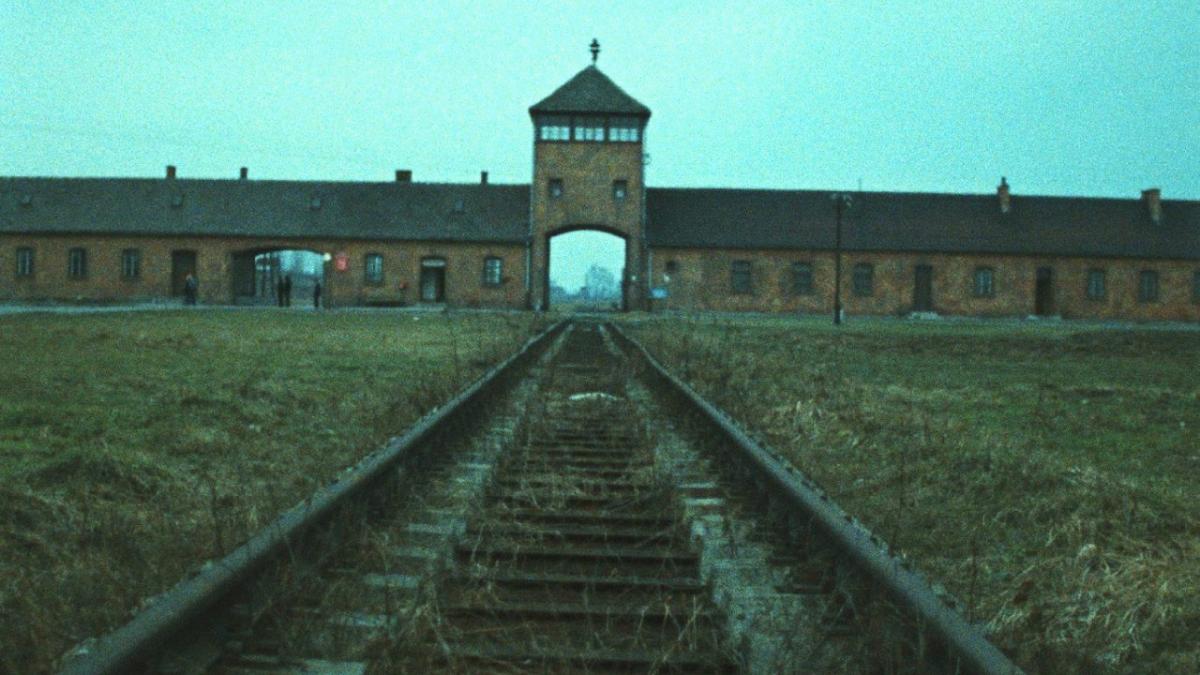
Directed by Claude Lanzmann
Starring Richard Glazar, Raul Hilberg, Filip Müller, Mordechaï Podchlebnik, Simon Srebrnik, Rudolf Vrba
Did we like it? 🤷♂️👍
Would we watch it again? 👎
Whew. Ok. We knew this 9.5 hour documentary about the Holocaust was going to be more one of the more challenging movies to watch on The List, not to mention that it was immediately after another Holocaust film #5: Schindler's List (1993) – that's a lot of difficult material back-to-back.
As a historical artifact, Shoah is incredibly important. It was hours and hours of long conversations with actual Holocaust survivors, bystanders, and even some former Nazis. I suspect some of facts and stories dredged up in these conversations might not have been known before this documentary was created – it's easy to take our comprehensive modern knowledge of the Holocaust for granted, but films like this are the reason we have some of those stories in the first place. This is the kind of material that needs to be preserved permanently for future generations to fully understand the scope of the atrocities committed during this time, and I was glad to learn afterwards that most of the 350(!) total hours of unedited footage that went into making this documentary has been digitized by the United States Holocaust Museum and Memorial.
But as a documentary, it wasn't great. To be fair: while I've seen a lot of older films at this point, my experience with documentaries really only spans those that were created over the past 20 years, and I know that documentary filmmaking styles and technology have obviously improved greatly over that time. But so much of this documentary could have been edited down to convey the same message with far less empty space.
For example, the director apparently decided that he needed to be actively present in many of the conversations with survivors (instead of editing himself out and focusing only on the interviewees, which is more common nowadays), which was fine when they spoke German, French, or English because Lanzmann also spoke those languages. But when the interviewees spoke Yiddish, Hebrew, or Polish, he had to use an interpreter, so the interview would go: Director (asks a question in French) → Interpreter (translates the question to Yiddish/Hebrew/Polish → Interviewee (responds in Yiddish/Hebrew/Polish) → Interpreter (translates back to French) → Director (responds in French...) – all the while we, as an English-speaking audience, are waiting for the final English subtitles which we only get after all of the intermediate steps are complete. These sections really dragged on and I didn't feel like the director's presence added much, and I think at least an hour or two could have been cut if they simply directly translated these interviews rather than showing all the realtime translation. The film's narrative composition was also kind of strange to me, and the end in particular didn't really present any conclusion or anything, it just seemed to be an ad hoc (albeit important) individual story.
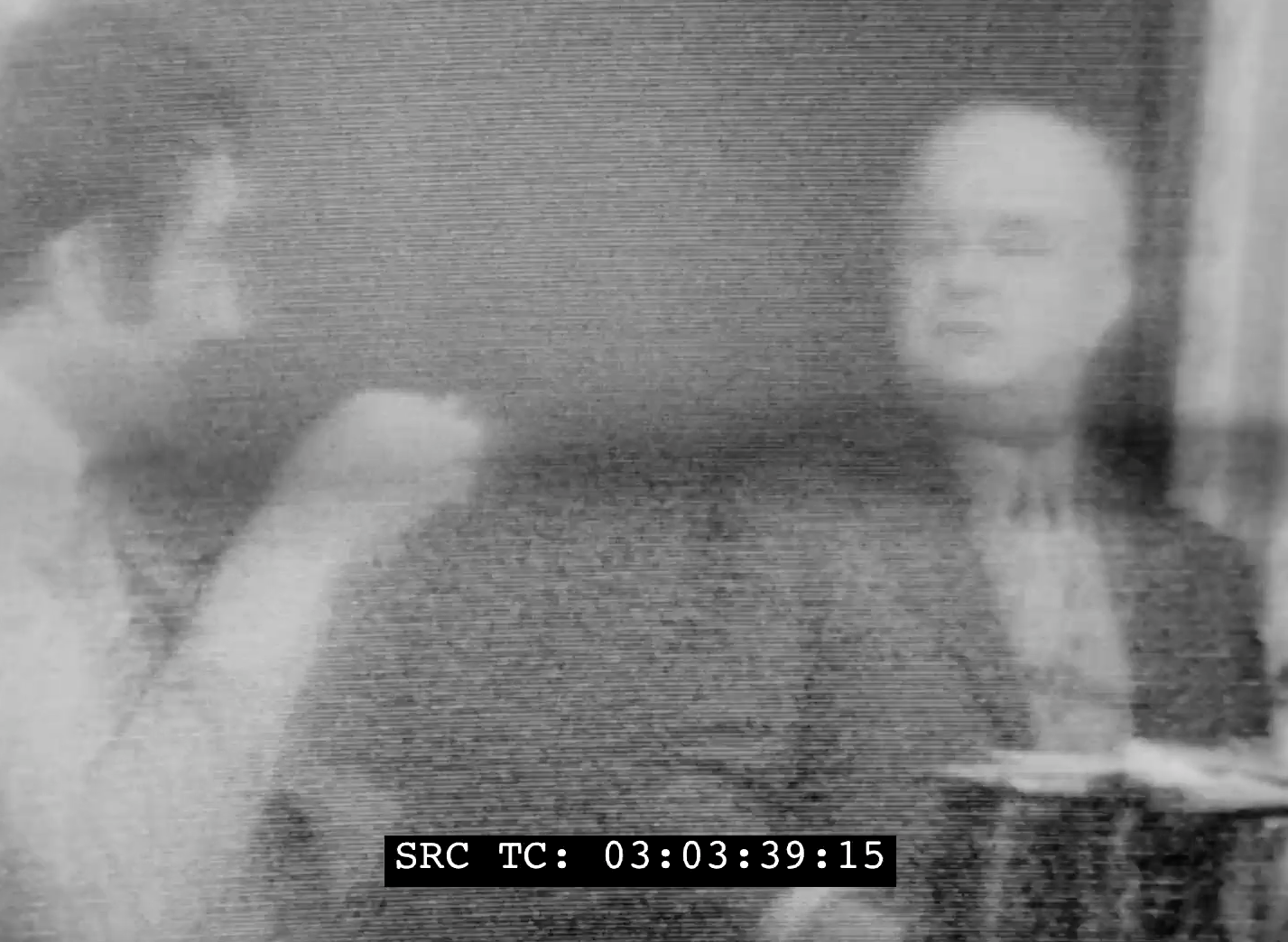
Some parts that really stood out though were the interviews with the Germans and former Nazis. In the documentary, many of these scenes were presented as clandestine, with a film crew operating out of a van with an antenna on top while the director seemed to surreptitiously film them without their knowledge. This was apparently because these individuals only agreed to speak with Lanzmann so long as they were not filmed and their names were not used - neither of which Lanzmann followed through on. Hearing these first-hand accounts from former Nazis was equal parts fascinating and deeply infuriating.
Finally, I'll say that it was an good (and mostly unintentional) complement to this documentary that it immediately followed #5: Schindler's List (1993), and I also happened to be gifted the excellent Maus graphic novel which I also recently finished. Although these obviously aren't fun topics to spend time in, they really gave me a much deeper understanding and appreciation of the Holocaust and the events surrounding it.
Now, as a palate cleanser, it might be time for a rewatch of Inglorious Basterds (2009)...
#6. City Lights (1931)
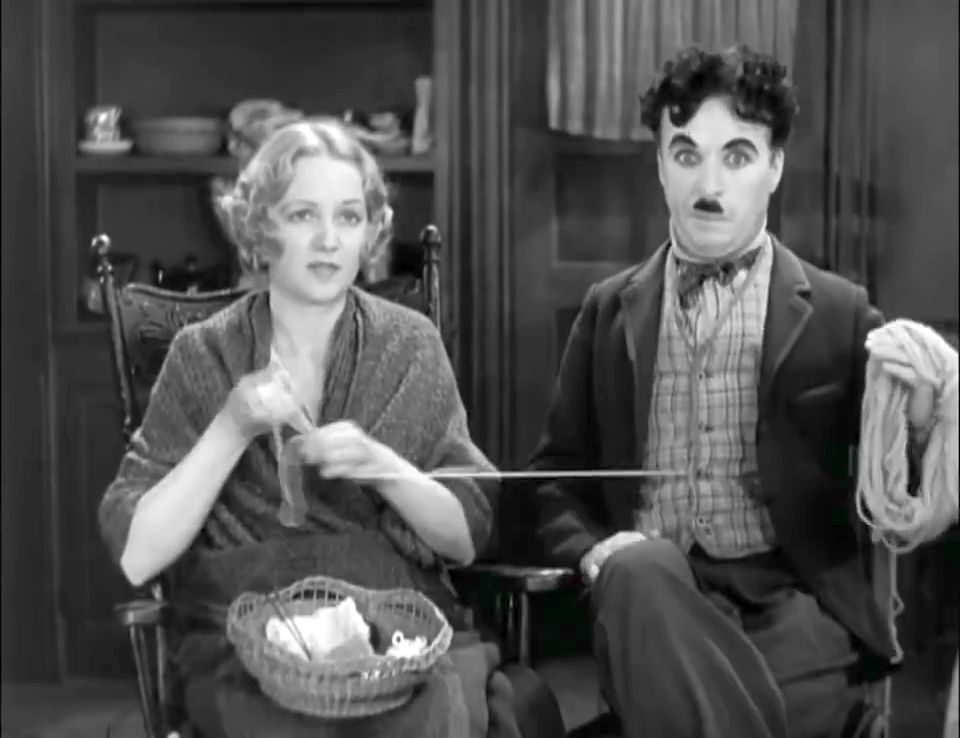
Directed by Charlie Chaplin
Written by Charlie Chaplin
Starring Charlie Chaplin, Virginia Cherrill, Florence Lee, Harry Myers, Al Ernest Garcia
Did we like it? 🤷♂️👎
Would we watch it again? 👎
I believe this is the second silent film we've watched on The List, with the first being #27: Modern Times (1936) which was also written, directed, and starring Charlie Chaplin (oh and he also edited it and composed its score, because hey, why not?). In City Lights, our beloved Little Tramp meets and falls in love with blind woman, and gets wrapped up in all sorts of hijinks after befriending an alcoholic millionaire who only seems to remember The Tramp when he's inebriated.
As with Modern Times, I'm blown away by how Charlie Chaplin owned almost every facet of creating this movie, and there were some funny moments that we really enjoyed during this one. But overall, we didn't love it, and probably wouldn't watch it again.
If you liked this, you can follow along with the rest of our journey to watch the top 100 highest-rated movies of all time, and you should also sign up for my newsletter (it's free!) to get automatically notified when I make new posts in the series.